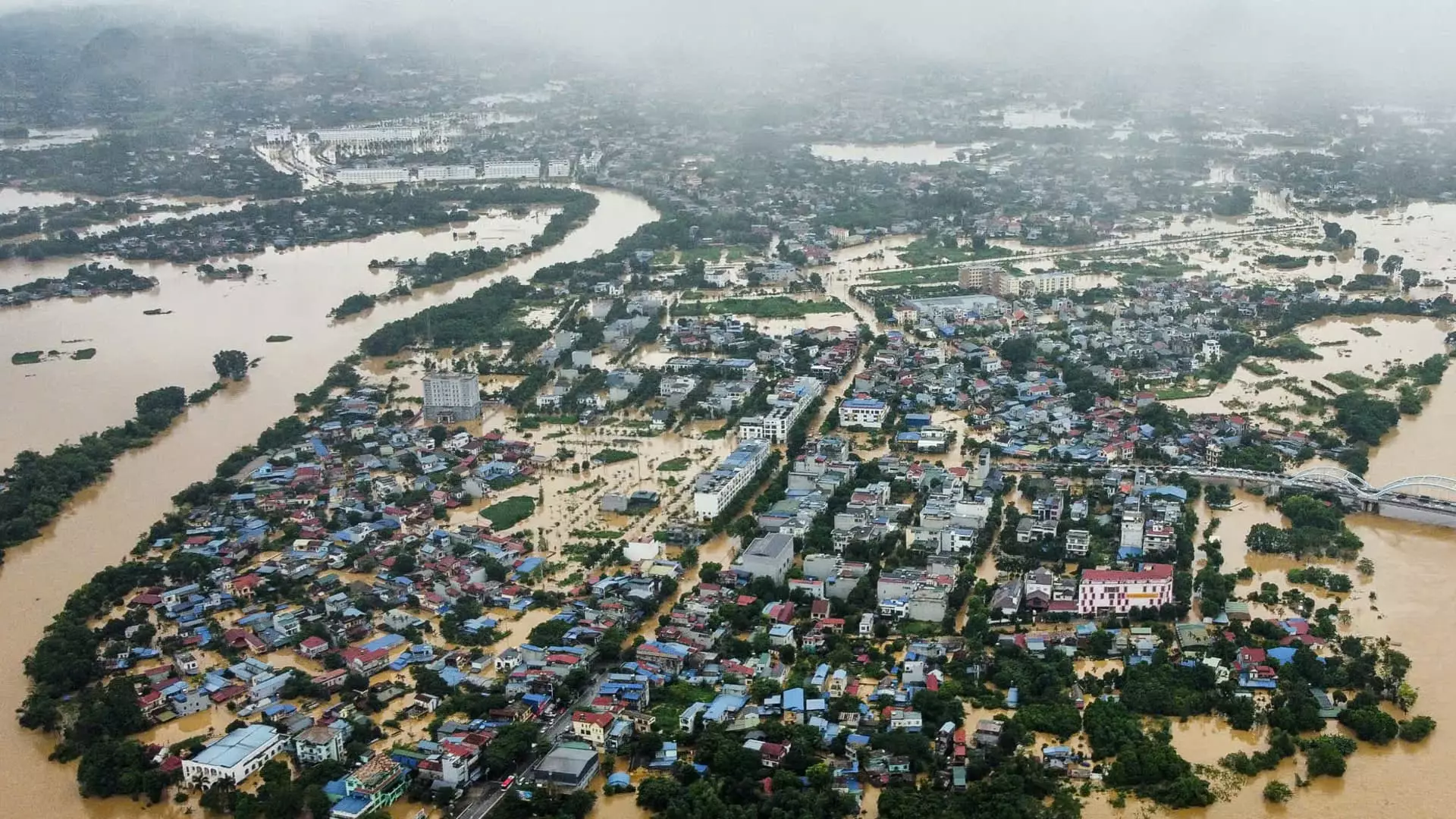As we move deeper into the 2020s, the Indo-Pacific region finds itself grappling with a myriad of challenges, yet 2024 has proven itself to be both a tumultuous and transformative year. Emerging from the shadows of a globally shaken economy and lingering geopolitical hardships, the narratives of hope and despair intertwine poignantly throughout the various nations that inhabit this vast region. From environmental catastrophes and demographic crises to political upheaval and cultural phenomena, the multifaceted nature of 2024 is deserving of rigorous examination.
2024 is a telling chapter in the ongoing fight against climate change. The year added to the growing list of climate-induced fatalities, tragically marking it as one of the deadliest in recent history in the Indo-Pacific. Super Typhoon Yagi’s rampage through Southeast Asia exemplifies the severity of this crisis. Striking with unprecedented strength, it left behind devastating effects on livelihoods, infrastructure, and mental health across the Philippines, Vietnam, and neighboring nations.
Yet the situation is not limited to just typhoons. The regions plagued by annual monsoon rains found themselves steeped in disaster, as floods in countries such as Afghanistan, Bangladesh, and Pakistan culminated in catastrophic loss of life and dislocation. Meanwhile, prolonged droughts gripped other areas, forcing communities to reckon with extreme water shortages and heat waves that made daily survival a struggle. This stark juxtaposition of calamities showcases the complex, often unpredictable nature of climate events facing a region increasingly vulnerable to such fluctuations.
In tandem with environmental crises, 2024 shone a spotlight on the discrepancy in human capital as record-low fertility rates continued to unsettle many East Asian nations. Countries like South Korea, China, Japan, Taiwan, and Hong Kong faced escalating concerns over demographic shifts. The stark reality of declining birth rates poses not just social implications but also carries significant repercussions for the labor force and economic sustainability.
Societal transformations, characterized by shifting gender roles and intensified work demands, coupled with escalating living costs, are reshaping family planning norms in these cultures. The term “super-aged society” has become commonplace as nations adapt to populations where a significant portion is elderly, signaling an urgent need for comprehensive policy responses to address these evolving demographics.
Political turbulence has defined 2024 for many in Asia, as electoral processes revealed both the resilience and fragility of democratic frameworks. The resignation of Bangladesh’s Prime Minister following protests, coupled with South Korea’s President battling impeachment proceedings, illustrates the volatile nature of politics across the region. While some nations grapple with internal discord, others, like Taiwan, displayed a thriving democratic spirit through successful elections that endorsed democratic integrity.
Meanwhile, hotspots like India showcased mixed results in governance as Prime Minister Narendra Modi found himself managing a coalition government, serving as a reminder of the shifting political tides that characterize Asia’s democratic landscape. In a year filled with political twists, one could argue that the promise and perils of democracy have been tested like never before.
While 2024 bore witness to significant strife, it also heralded a surge in cultural phenomena originating from South Korea, often dubbed Hallyu, or the Korean Wave. This cultural export has dramatically altered perceptions and economic landscapes beyond Asia. From K-pop to cinematic achievements, the global appetite for Korean entertainment flourished significantly, with series such as “Queen of Tears” captivating audiences worldwide.
Additionally, the literary achievements of Korean authors positioned them as driving forces within the global literary scene. The elevation of figures like Han Kang to a Nobel laureate brings a new wave of appreciation for Korean literature, contributing to South Korea’s cultural capital. By projecting soft power through its cultural exports, the country enhances its global influence both economically and socially.
The events of 2024 across the Indo-Pacific reveal a complex interplay of adversity and resilience. Natural disasters have underscored the existential threats posed by climate change; demographic shifts demand urgent attention from policymakers; and political narratives hint at both progress and uncertainty. Yet, amidst these challenges, cultural achievements stand testament to the region’s ability to captivate the world.
2024 serves as a vivid reminder that the Indo-Pacific has the potential to navigate tumultuous waters while simultaneously embracing the vibrancy of its cultural identity. The combined stories of struggle and success posit that, despite the uncertainties, hope resides at the heart of the Indo-Pacific journey.


Leave a Reply